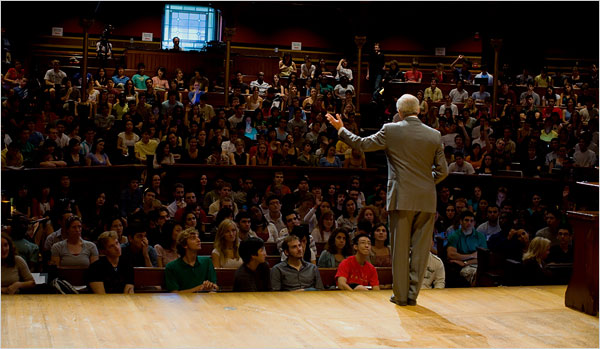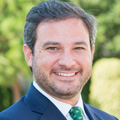Uruguay has been chosen by The Economist as the country of the year among other reasons for opening the legal market of cannabis. Letting the specifics of drug debate aside, we see that left wing ideology and libertarian economics concur in praising this expansion of the role of markets . At the same time the mainstream cultural and social media denounce “the markets” as the usual suspects of nearly all contemporary social malaise or injustice in politics, education, health care…
We don’t have a clear and open debate on what should be the rules for allowing certain goods into the market or not, and that is lowering the level of our political conversation. Michael J. Sandel, a Harvard professor, has published his own suggestions under the title: “What Money Can’t Buy. The Moral limits of Markets”.
Sandel is a veritable maître à penser for millions of people around the world. His course “Justice. What is the Right Thing to Do?” is the most popular at Harvard. He is one of the most prominent public intellectuals in the US and abroad. You can check in Youtube his ability to lead intellectual conversations with a public of hundreds or read his best-selling book about Justice to realize that.

In “What money can’t buy?” he raises important questions that are usually ignored in current public debates. Through everyday life examples, denounces the corrupting power of money in social spheres that provides intrinsic human goods, and for that reason should be governed by principles different from market supply and demand: national defense, surrogate motherhood, human organs trafficking, political rights, etc. He warns that their commodification surreptitiously corrupts them. He also denounces that the expansion of market mentality is raising inequality and destroying any form of common life among people of different income levels -spaces of common life that are fundamental for a good society.
The Role of Markets in Society
As a response he calls for an in depth and robust public debate on the “role of markets” in society. In his opinion “(after the financial crash) there hasn’t really been a serious re-examination of the role of markets and money in our society. Without quite realizing it, over the past three decades, we have drifted from having a market economy to becoming a market society, a society where just about everything is up for sale”.
I want to seize the opportunity of his invitation to share some thoughts on the role of markets in a good society. This topic is too wide for a blog post like this. So let’s focus on his main argument.
What is wrong with the expansion of markets?
There is no market without a proper legal and cultural framework . Here I will paraphrase Augustine: “markets without justice are no better than a band of thieves”. When there is no rule of law, there are is not market exchange, but coercion. Certainly the rule of law and the absence of corruption are generally accepted requirements for any market to function properly. But there is more needed to have a functioning market economy contributing to the common good -that is: a real market and not the mere appearance of it. Paraphrasing a German thinker-: “market Economy lives by prerequisites which it cannot guarantee itself” (Böckenförde). Alongside with a strong institutional framework protecting individual rights, there are also moral conditionings to markets, excluding certain ends in consumption and productive decisions.In terms: the market behavior of individuals selling and buying is regulated by the moral virtue of justice, but also of temperance, the virtue that moderates the use of material goods. Our social and individual behavior is certainly corrupted by the original sin of placing the means as ends (instrumental goods as intrinsically desirable, what Aristotle called chrematistics); and what the Person of the Year for Time, Pope Francis, calls “the idolatry of money”.
But is there a legal-institutional solution for this problem or is it just a private or cultural moral problem? We must remember that the classics called temperance a virtue whose conduct norms are quite dependent on circumstances and for that reason does not allow a general regulation. So, regarding the relationship between instrumental and intrinsic goods, ends and means, money and human flourishing, what has to change? -Another big question that cannot be answered fully here. But let’s try to say something:
There is a social dimension of temperance that may require changes in terms of justice: public morality (the moral conducts that have a public dimension for its gravity and or its importance to the shaping of society and the constitution of personality, primarily regarding education of the minors). Public morality is beneath the historical exclusion of some goods from private or public ownership (life, the body, the workforce, marriage, sexual intercourse, certain substances like recreation drugs, etc.). Public morality: there is where the debate lies. That is why we haven´t had this debate . We didn’t have it in the past because de basic moral consensus in our society was not put into question. We don´t have it now because -Sandel warns- we think that letting the markets to decide is a neutral way to solve conflictive moral debates. We tend to think naively that more freedom to consume is simply more freedom to decide. So limits to markets are not welcome when it comes to moral issues.Sandel is somehow astute in framing this debate in terms of “the role of markets”, because the risk of commodification of important aspects of life alerts a wide range of population, also among the left. But at the same time it is confusing because the problem are not the markets per se, that require a solid legal and moral framework, but the erosion of certain moral boundaries through an erroneous expansion of property rights.
It is true: fostering certain behaviors with monetary incentives (like paying children for reading books in an example mentioned by Sandel) can be corrupting for intrinsic human goods and community values. But the important and difficult question is to identify those intrinsic goods that should not be for sale -that should not be object of property rights. Commodities and money are by definition means with no intrinsic value (this is why they allow being exchanged by a price). We can, we should debate which one are intrinsic basic goods and how they should be delivered in social life. For instance: John Finnis (a leading philosopher from Oxford) identifies seven: “life, knowledge, play, aesthetic experience, sociability or friendship, practical reasonableness, and religion”, though the list admits discussion. Let’s have it!


